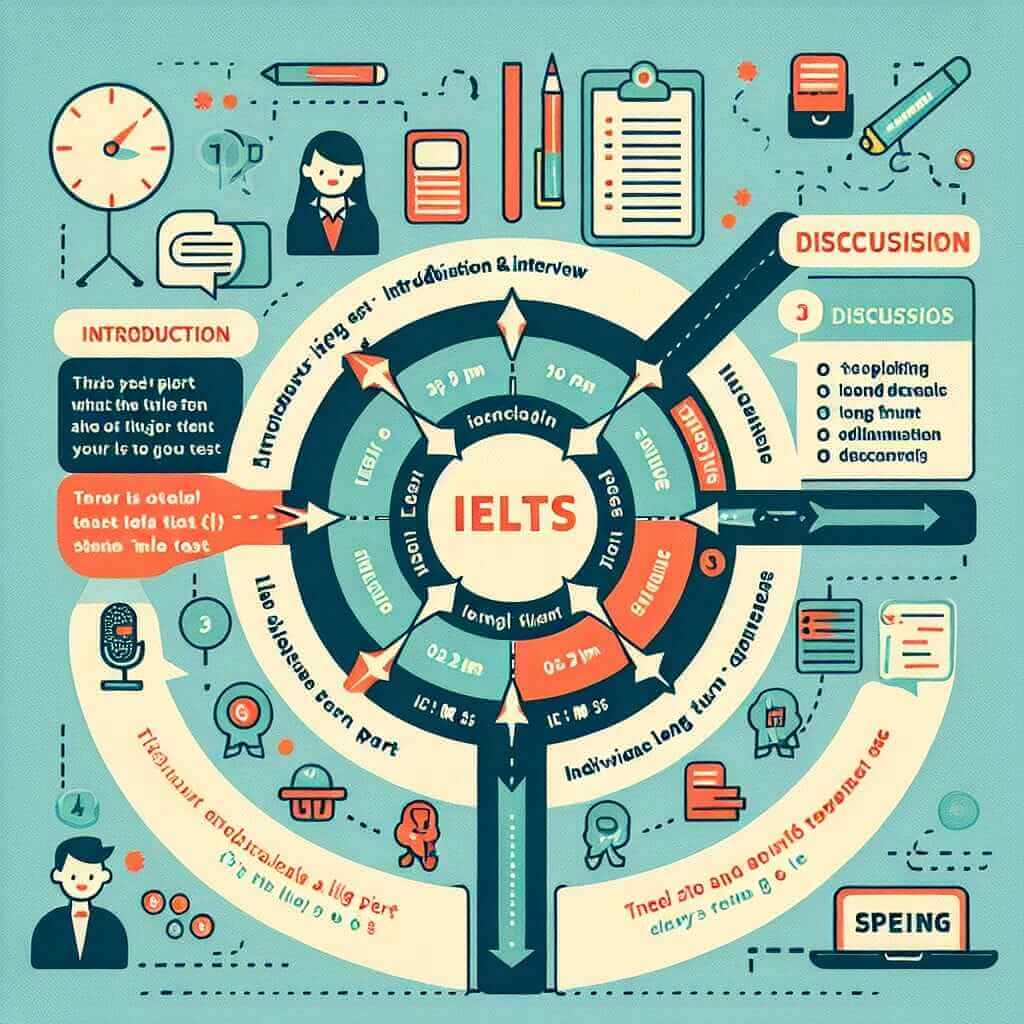As an IELTS Speaking teacher with over two decades of experience, I’ve had the privilege of guiding countless students toward their desired band scores. The journey to mastering the IELTS Speaking test is unique for each individual, but certain common threads weave through their experiences. Today, I want to share some of the most crucial lessons I’ve learned, insights that can potentially transform your approach to this section.
Understanding the True Essence of IELTS Speaking
Many perceive the IELTS Speaking test as merely an assessment of vocabulary and grammar. While these elements are undeniably important, they represent only the tip of the iceberg. The true essence of this test lies in evaluating your ability to:
1. Communicate Effectively:
This involves conveying your thoughts and ideas clearly and coherently. It’s about engaging in a natural conversation, responding promptly to questions, and elaborating on your answers in a structured manner.
2. Demonstrate Fluency and Coherence:
Speaking at a natural pace, connecting your ideas smoothly, and using a range of discourse markers to guide the listener are key. Hesitation is natural but should be minimized.
3. Showcase your Lexical Resource:
Using a wide range of vocabulary appropriate to the topic is essential. However, prioritize clarity over using overly complex words that you might mispronounce or use incorrectly.
4. Demonstrate Grammatical Range and Accuracy:
Using a variety of sentence structures and grammatical tenses accurately is important. However, don’t be afraid to make minor grammatical errors as long as they don’t hinder understanding.
Effective Strategies for IELTS Speaking Success
Now that we’ve delved into the core of what the IELTS Speaking test assesses, let’s explore practical strategies that can propel you toward success:
1. Immerse Yourself in the English Language:
- Listen Actively: Engage with English media – podcasts, movies, news – paying close attention to pronunciation, vocabulary, and intonation.
- Speak Regularly: Practice speaking English daily, even if it’s just with yourself. The more you practice, the more confident and fluent you’ll become.
- Read Widely: Explore English texts on diverse topics to expand your vocabulary and understanding of grammar.
2. Familiarize Yourself with the Test Format:
- Understand the Structure: The Speaking test has three parts – Introduction and Interview, Individual Long Turn, and Discussion. Each part has a specific objective.
- Practice with Past Papers: Utilize IELTS practice materials to become comfortable with the question types and time limits.
3. Develop Your Answering Techniques:
- Expand Your Responses: Avoid giving short, one-word answers. Elaborate on your points, providing reasons and examples.
- Structure Your Thoughts: Organize your ideas logically using cohesive devices like “Firstly,” “Secondly,” “In addition,” and “Finally.”
- Manage Your Time Wisely: Practice speaking for the allotted time in each part to avoid rushing or running out of time.

Illustrative Examples from Real IELTS Speaking Tests
Let’s examine how these strategies can be applied using examples from actual IELTS Speaking tests:
Topic: Describe a memorable journey you have taken.
Weak Response: “I went to Paris. It was beautiful.”
Strong Response: “One of the most memorable journeys I’ve undertaken was to Paris a few years ago. It was a trip I had always dreamt of, and it exceeded all my expectations. From strolling along the Champs-Élysées to marvelling at the Eiffel Tower, every moment was etched in my memory. The city’s charm, the delectable cuisine, and the rich history combined to create an unforgettable experience.”
Analysis: The strong response elaborates on the experience, providing specific details and sensory descriptions to engage the listener. It showcases a wider range of vocabulary and demonstrates better sentence structure.
Final Thoughts: Your Path to IELTS Speaking Confidence
Remember, achieving a high score in the IELTS Speaking test is not about memorizing answers or using complex vocabulary unnecessarily. It’s about demonstrating your ability to communicate effectively and showcase your language skills. Embrace the learning process, be patient with yourself, and celebrate your progress along the way.